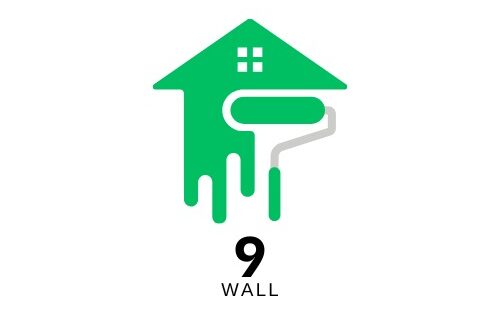Key Takeaways
- Building permits ensure the safety and legality of construction projects.
- Understanding zoning laws and codes is crucial for a successful application.
- Utilizing online resources and local experts can simplify the permit process.
Table of Contents
- The Importance of Building Permits
- Navigating Zoning Laws and Codes
- Tips for a Successful Permit Application
- How to Handle Permit Delays
- Utilizing Online Resources for Building Permits
- Considering Local Experts in the Permit Process
- Real-Life Examples of Permit Management Success
The Importance of Building Permits
Building permits form the backbone of a well-regulated construction industry. They act as a filter to ensure that any building project adheres to the established guidelines and safety standards. By acquiring the necessary permits, you get a green light that your project is safe, sound, and complies with local regulations. It is vital as it protects the integrity of the structure being built and the safety of future occupants and the community at large. For example, understanding how to apply for Charlotte building permits online can streamline the process and improve project timelines in bustling urban areas like Charlotte.
The significance of building permits extends beyond just safety. They play a critical role in maintaining neighborhood property values by ensuring that new constructions or renovations do not negatively impact the surrounding infrastructure or aesthetics. Moreover, permits can protect property owners from future legal disputes arising from non-compliance issues. This extra protection secures your investment, ensuring that your project is successful in implementation and legally solid in its groundwork.
Navigating Zoning Laws and Codes
Zoning laws and building codes can often seem like a labyrinthine set of rules. However, grasping these regulations is essential for a smooth building process. These codes regulate almost every structure aspect, from its height to its design and intended use. For instance, a residential building might have different requirements than a commercial one. To navigate this effectively, use resources that offer a comprehensive overview of standard practices and requirements.
In most jurisdictions, zoning laws address individual building specifications and how these structures fit within the broader community plan. Grasping these subtleties early in planning can conserve time and resources later. Consulting detailed online zoning maps and checking with local planning offices can provide a clear picture of what is expected for your project, preventing costly redesigns and delays.
Tips for a Successful Permit Application
- Accurate Plans: Before submission, double-check your building plans for accuracy. Minor errors can lead to significant delays, as corrections and re-approvals take time.
- Consultation with Authorities: Engage with local authorities or building departments early to clarify any ambiguous regulations. This proactive step can iron out wrinkles before they become hurdles.
- Advance Submissions: Submitting your application well before planned construction can buffer against unexpected delays caused by a backlog at the local permitting office.
These strategies can make the permit application process more predictable and less fraught with surprises.
How to Handle Permit Delays
Delays in securing permits can halt construction projects, increasing costs and frustration. To mitigate this, maintain a proactive stance by contacting the permitting agency to request updates and express eagerness to comply with any requests. Often, delays occur due to missing information or documentation errors, so ensure your application is thorough and complete before submission. Building a buffer into your project timeline for potential procedural setbacks is a practical approach. It means adjusting project schedules to accommodate potential delay periods, particularly in jurisdictions with longer processing times. By planning for these delays, you can maintain steady momentum on the project, even when facing unforeseen hold-ups.
Utilizing Online Resources for Building Permits
Today, digital platforms are invaluable in demystifying the building permit process. Government websites often feature downloadable forms and clear instructions, while other online resources offer step-by-step guides. These tools can significantly decrease the time required to navigate the bureaucratic complexities linked to permit applications. For instance, online courses like those available through National Business Institute seminars offer comprehensive training on procedural compliance, providing you with insights and strategies for handling permits effectively. Harnessing these resources does not just make the process easier; it can also enhance your understanding of the regulatory landscape. This improved comprehension can lead to better project planning and execution, fewer overruns, and a greater likelihood of success.
Considering Local Experts in the Permit Process
The use of local experts can significantly enhance your building permit strategy. Professionals such as experienced architects, engineers, or contractors bring valuable insights and can easily navigate the local permitting ecosystem. Their familiarity with nuances and their existing relationships with local authorities can help smooth the path to obtaining approvals. Such experts are not merely facilitators but also advisors who can help optimize your project to align with local regulations. Their involvement can help avert common pitfalls, enhance project design, and even lead to cost savings by avoiding redesign fees or regulatory fines. By integrating local expertise, you effectively build a bridge over the complexities inherent in the permitting process.
Real-Life Examples of Permit Management Success
Many construction projects have exemplified the benefits of effective permit management by prioritizing preparation and expert assistance. These include residential developments that have navigated multifaceted zoning and environmental concerns to achieve on-time completion. In some instances, project managers have shared testimonials on how early permit acquisition and strategic planning resulted in efficient workflows, saving time and money. These real-life successes highlight the importance of understanding the permit process and employing innovative strategies. With careful planning and utilizing online resources and professional insights, even complex projects can proceed smoothly, resulting in a successful and stress-free build.








